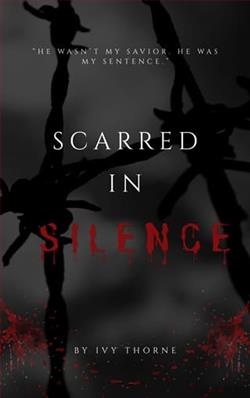Page 66 of The Children of Eve
“The woman I gave your card to recently, she was crying in a Starbucks. I could have ignored her because that’s what the other customers were doing. They all looked embarrassed, and some of them even seemed annoyed. She was making them feel bad when all they wanted was to stare at their screens on their lunch break, and I got that. They could even have justified their response to themselves by arguing that she wanted to be alone and by intruding they’d make her feel ashamed of a public show of grief, which might have some truth to it, if only a self-serving one.
“But if she’d wanted to be alone in her sadness, she wouldn’t have been in a Starbucks. And if that was the case, what would it hurt to ask if there was anything I could do, even if it was only to listen? It turned out that her daughter had gone missing three years ago that day. She just vanished at the age of twenty-two. She—the daughter, I mean—had problems with depression and substance abuse, and was arrested a couple of times for soliciting. She got pregnant and had a son, who themother helped look after. The daughter had gone AWOL a couple of times since the birth, for no more than a few days each time, after which she’d show up again, sadder and more bruised.
“But according to her mother, the girl had started to get her life back together in the months before she disappeared. She’d signed up for a beautician’s course and was working nights in a bar to cover her fees. She loved being with her son and had met a guy who liked being with both of them. Then—poof!—she’s gone. She doesn’t come home one night from the bar, but because of her past, it may be that the police don’t pull out all the stops at first—which is understandable, if not forgivable, though I accept it may just be the mother’s impression of events.
“But many of the police she dealt with, from first to last, were men. And the mother, she’s had her difficulties, too. She got married and divorced in the same year, before she and the groom could legally drink at the wedding, and has unwise tattoos, the sort that look like shit—sorry, my bad—when you’re young and shittier—sorry again—as you get older.”
“And she told you all this in one sitting?”
“I’m a good listener,” said Sam.
“More than that, you must have asked the right questions.”
“Are you saying I’m hired after all?”
“Not unless I took that bang to the head after all and didn’t notice. Go on.”
“So,” Sam continued, “there’s a particular law enforcement narrative from the start, and not one that favors mother and daughter. I’m not saying the police didn’t do their job or don’t care about the girl and what might have happened to her. What I am saying is that, from the beginning, mother and daughter were at a disadvantage. Now, after three years, her child’s disappearance is officially a cold case. The police move on because they have to, and there’s always a new kid to search for.
“Is this woman’s daughter coming home? Probably not. Is she dead? I think so. If the mother calls you, can you do anything for her?Perhaps, even if it’s only to help find a body for her to bury. But I want to be part of that ‘perhaps.’ In a world dominated by men who legislate, investigate, prosecute, and pass judgment, but who don’t know what it’s like to be a woman in that world, there’s a place for a female enclave, a safe space, and I want to be part of that as well. Have I answered the question?”
I don’t think I’d ever loved Sam more.
“Yes,” I said, “you have. What’s the girl’s name?”
“Lynette Reynolds. Her mother is Julee Reynolds. And I didn’t just give Julee your card, I also got her number.”
She produced a notebook from her bag, tore a page, and passed it over.
“You can keep it,” she said. “I’ve added her to the contacts on my phone.”
“Look at you, all twenty-first century. I’m surprised you even own a pen and paper.”
I folded the note and put it in my pocket.
“Thank you,” said Sam.
“I haven’t said that I’ll talk to her.”
“Not for that. I meant for not speaking about her daughter in the past tense.”
“It’s tied up with that same ‘perhaps.’ And what’sperhapsbut just another word for ‘hope’?”
We prepared to leave. As I dropped some bills on the table to cover the tip, Sam asked: “Are you still seeing Sharon?”
Sam was one of the few people who referred to Macy by her first name. Macy had finally met Sam and me for dinner the last time Sam stayed over in Portland. They’d gotten along fine—not that I’d expected anything less of either. However, it was a relief.
“I am. And about what we’ve been discussing: she might be a good person to consult, either before or after you make your final decision. She might be a better role model, too.”
“I’ll bear that in mind,” said Sam as we walked to the door. “Mom will come around, won’t she?”
“It’ll be hard for her, but there’s a good chance she will, because she understands hope too.”
I caught the two guys checking Sam out again.
“Eyes on the table, boys,” I said, “unless you’d like them blackened.”
They quit checking her out.















